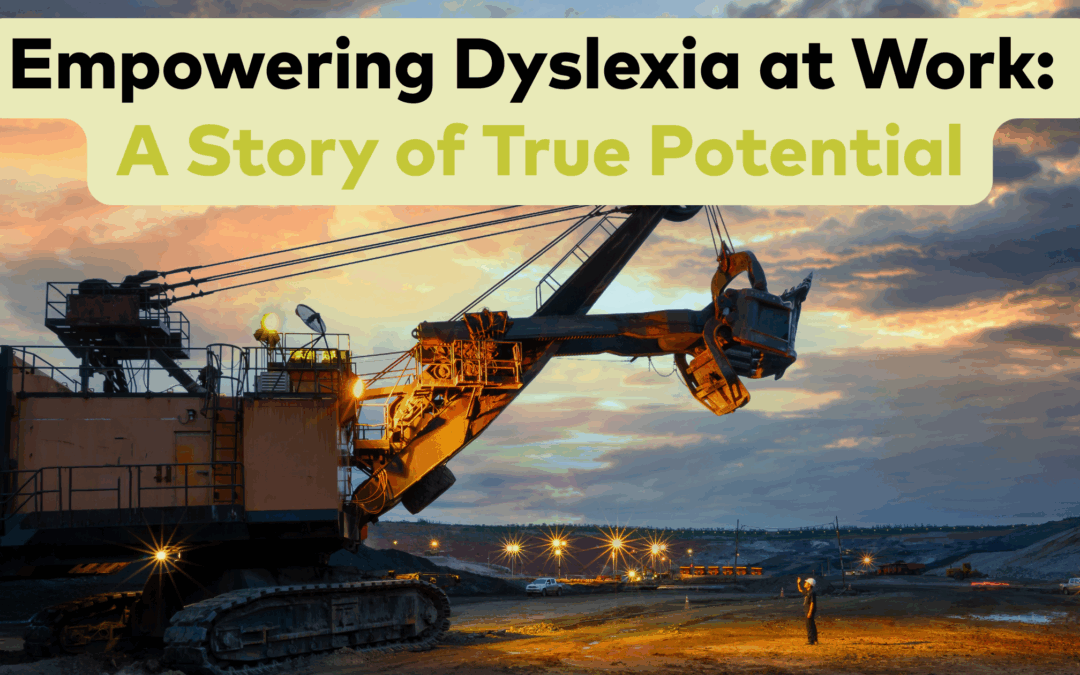A Story That Reminds Me Why This Work Matters
Every once in a while, a story comes along that reminds me exactly why I do this work.
When Heavy Industry first invited me to support one of their employees through a one-to-one Davis programme, I knew it would be a meaningful step. At the time, it was the first initiative of its kind by the organisation to support someone with dyslexia. What happened next was a powerful transformation—not just for the individual, but for the entire team.
When the Problem Isn’t What It Seems
Initially, there were genuine concerns. This employee was committed, reliable, and hardworking. However, mistakes kept happening—often due to missed or misread communications. He wasn’t reading critical emails, including those related to health and safety. Consequently, the impact wasn’t just personal—it posed real risks to his colleagues on the floor
As it turned out, what looked like carelessness was actually something much deeper: undiagnosed and unsupported dyslexia.
Building New Skills, Reclaiming Confidence
Through the Davis programme, he learned how to focus and process information in ways that made sense to him. Gradually, he built the tools he needed to read, understand, and respond to written communication. As a result, his confidence grew, his clarity improved, and he stepped into his role with renewed purpose.
Before long, the transformation became evident.


No Mistakes—And a Promotion
Fast forward two years, and I followed up with the company. What I heard left me speechless: he hadn’t made a single mistake since completing the programme. Not one.
Even more impressively, he had earned a promotion and was thriving in his new position. His colleagues had come to recognise—and value—the unique strengths of his dyslexic mind.
A Manager’s Eye-Opening Realisation
A team leader at Heavy Industry shared this reflection:
“I feel that the Davis programme has opened a door that had been tightly shut for some time.”
He continued:
“It’s been an eye-opener for me just how dangerously easy it can be to write off people who have trouble learning things in the way that most of us learn them. Thankfully, quality, non-judgmental assistance exists to support people with dyslexia.”
Rising to the Challenge
One of the most affirming moments came when this employee applied for a senior role.
“Just this week, they were one of five applicants. The interview team felt very impressed with the depth and strength of the answers he gave. We also appreciated the thoughtful questions he asked us. Ultimately, we offered him the position, and he accepted.”
“There is no doubt that you, Claire, must take much of the credit for this transformation.”
The Real Credit Belongs to Them
While I’m deeply touched by the kind words, in truth, the real credit belongs to the individual who committed to the process—and to the workplace that chose to act with vision and courage. They understood that “different” doesn’t mean “less.” True support doesn’t aim to fix people; rather, it gives them the tools to thrive on their own terms.
The individual stood at the end of the programme in front of the management team, saying:
“Yes! I can read now as you wanted and needed me to. But you all need to know – this programme HEALED me. It healed ME.”
What Happens When We Support Difference
This experience reminded me that when we build environments that honour how people learn, we don’t just change individual lives—we reshape workplace culture for the better.
Together, let’s keep rewriting the story of what’s possible.

